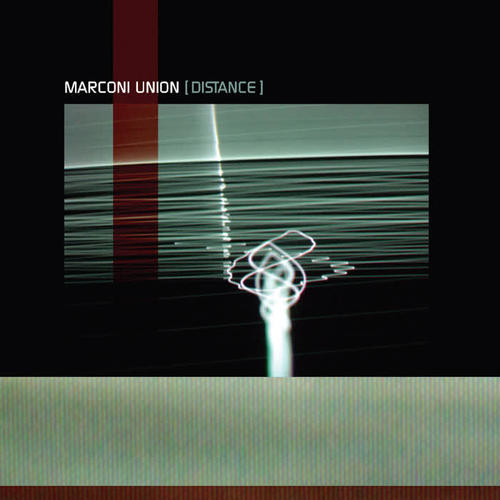
Distance
by Marisa BrownNot much is known about the British group Marconi Union, except that they share a label with Brian Eno, the same Brian Eno who asked the duo to oversee the remastering of his back catalog. This would automatically give Marconi Union a measure of credibility regardless of the quality of their individual work, but fortunately for them, their own music only makes their reputation more deserved. Distance, their first release from All Saints, explores Eno's idea of the soundscape. The album, rather than being a collection of separate songs, is a unified composition, an illustrative 40 minutes that turn listeners into -- as the group puts it -- silent observers of fleeting urban images, travelers in a locked, moving car, who come into and out of a city on a straight black road. Perhaps because of this desire to describe a situation, the songs are never quite completely realized; there are no choruses or verses. Instead they grow slowly, allowing listeners to accustom themselves to each development (a soft chord progression, a tinkling guitar) before a new one is added. Theme and tone and atmosphere and a sense of the whole are all there, but nothing ever comes to a full conclusion, nothing is ever definitively stated, because, as Marconi Union remind us, our journey is very literally transitory: we're traveling in a car, and see nothing for long, just glimpses of the world around us. This effect is accomplished mainly through the use of prolonged synthesizer chords and short piano or guitar arpeggios that repeat and fade throughout the album. Occasionally the drums slide in and out, the bass enters, there's even a sax solo; but that foundation -- and what is coincidentally moving us through the album -- never alters much. It's also this foundation that makes Distance so strong, and so successful. It's constant enough to ground the listeners in their journey, to give them a kind of explanation, but there is still enough mobility in the music to push reflection further. The songs are long but they aren't overly oppressive or weighty; rather, they're just sections of the drive, different images to ponder and move on from. Marconi Union have accepted the transitoriness of things (clearly stated in the title of the closing song, "A Temporary Life"), and choose to embrace it and make something from it. What they've created is Distance.
